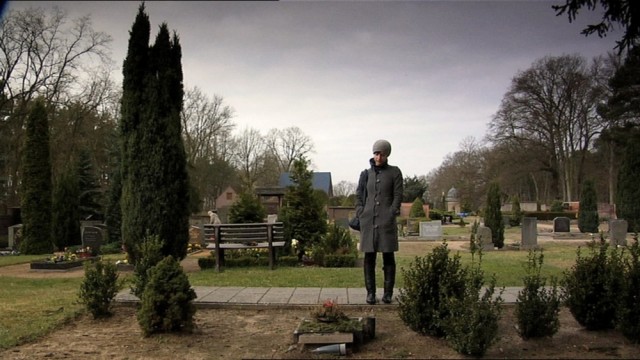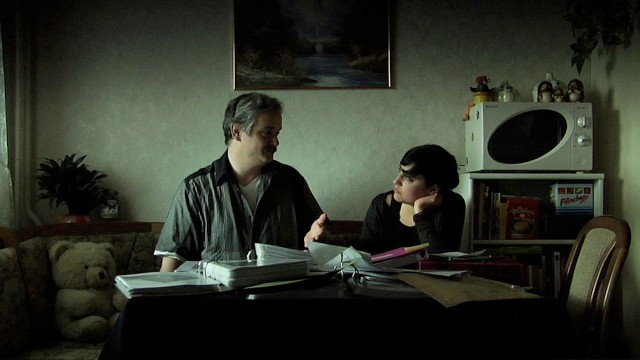Who: Artistic director Philip Glass, the Flaming Lips, Laurie Anderson, Tenzin Choegyal, Ashley MacIsaac, and more performers to be announced, with honorary chairpersons Chuck Close, Maggie Gyllenhaal, Peter Sarsgaard, Uma Thurman, and Arden Wohl
What: Twenty-fifth annual concert raising funds for the nonprofit Tibet House US, celebrating the Year of the Wood Sheep and Tibetan New Year
Where: Carnegie Hall, Stern Auditorium / Perelman Stage, 881 Seventh Ave. at 57th St., 212-247-7800
When: Thursday, March 5, $35-$200 (special packages with meet-and-greets and dinner reception start at $500), 7:30
Why: Tibet House US was founded in 1987 at the request of the Dalai Lama, “dedicated to preserving Tibet’s unique culture at a time when it is confronted with extinction on its own soil”; the annual benefit concert is always one of the cultural highlights of the year in New York City (for a look back at past concerts, including full setlists, go here)
twi-ny recommended events
COIL 2015 — MOLLY LIEBER + ELEANOR SMITH: RUDE WORLD
The Chocolate Factory Theater
5-49 49th Ave., Long Island City
January 7-12, $20
718-482-7069
www.ps122.org/rude-world
www.chocolatefactorytheater.org
With Rude World, Molly Lieber and Eleanor Smith conclude their intimate trilogy that started with 2012’s Beautiful Bone and continued with 2013’s Tulip, a trio of works danced and choreographed by the two women, who have been collaborating since 2006. Part of PS122’s COIL festival, Rude World takes place in the black box space at Long Island City’s Chocolate Factory, with two rows of folding chairs at the north and south ends and black curtains forming the east and west sides. The forty-five-minute improvisation-based performance begins as Lieber and Smith, both naked, enter the small, dark room. Lieber sits on a reserved chair as Smith stands right in front of her. Over the course of several minutes, Lieber slowly caresses Smith’s body, from shoulder blades to calves, while her face moves into Smith’s backside. The only sound heard is that of a far-off ventilation system, barely audible, as well as the soft gulps of the audience members. The opening sets the tone for the rest of the show, as each dancer gets a solo in which they embrace the space with runs and jumps; in between, the central section features their bodies entwining, virtually becoming one as they twist, turn, and roll, pushing and pulling each other, using various body parts in a creative vocabulary of movement bordering on the sexual. They also stand face-first against the black curtain, slowly moving up and down as if trying to merge with the barrier. Through it all, Madeline Best’s lighting shifts ever so subtly, melding with the silence, which is interrupted only by Lieber’s and Smith’s heavy breathing — and yet more audience gulps.
Developed during a residency at the Baryshnikov Arts Center, Rude World is a mesmerizing work that gently tantalizes and taunts the audience. Lieber, who has danced for luciana achugar, Neil Greenberg, Maria Hassabi, Juliette Mapp, and Melinda Ring, and Smith, who has performed with Ivy Baldwin, Katie Workum, Juliana F. May, Vanessa Anspaugh, and Molly Poerstel, boldly reveal themselves, daring the crowd to look at them and their bodies. The piece gets confusing when each dancer puts on at least one article of clothing, perhaps emphasizing the nudity too much. But the brief wardrobe changes also tell the audience that the dancers know that they’re being examined in a way costumed dancers aren’t, with usually hidden body parts on view and moving along with hands, legs, heads, etc. Of course, nudity in contemporary dance is nothing new, but it can still be bold and thrilling when used in intelligent, unique ways.
DYING FOR IT
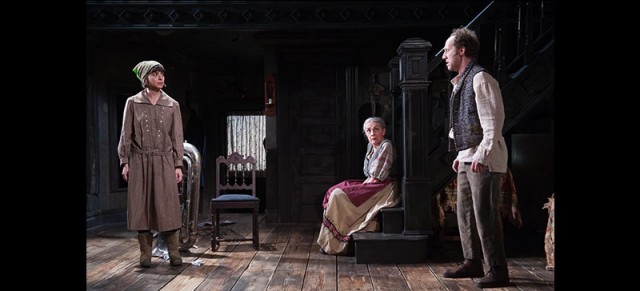
Semyon Semyonovich Podeskalnikov (Joey Slotnick) tells his wife (Jeanine Serralles) and mother-in-law (Mary Beth Peil) that he’s had enough in DYING FOR IT (photo by Ahron R. Foster)
Atlantic Theater Company
Linda Gross Theater
336 West 20th St. between Eighth & Ninth Aves.
Tuesday – Sunday through January 18, $20-$86.50
866-811-4111
www.atlantictheater.org
Living in 1920s Russia was no walk in the park, as so cleverly depicted in Moira Buffini’s Dying for It, a rollicking good “free adaptation” of Nikolai Erdman’s long-banned 1928 play, The Suicide. Twenty-seven-year-old Semyon Semyonovich Podeskalnikov (Joey Slotnick) is at the end of his rope. “I’m a parasite,” he tells his wife, Masha (Jeanine Serralles). “I’m a bloodsucking leech. I have no work in this worker’s paradise.” They have such little money, they live in the hallway of a miserable apartment building, their bed under the stairs. One of their upstairs neighbors, the hulking, recently widowed Alexander Petrovich Kalabushkin (C. J. Wilson), tries to convince him that “life is a miracle, full of wonder,” but Semyon is adamant that it’s too late to change his mind. “I have no dignity, no labor, no value at all,” he says. But shortly after he decides to off himself, he is bombarded by various members of Soviet society, each of whom wants to make him their martyr — one imploring him to write a suicide note crying out about what they believe is wrong with the social order, another protesting the revolution, the next a victim of Communism, et al. Too afraid to speak out themselves, they want the soon-to-be-dead Semyon to be their personal mouthpiece. Among those who want to turn Semyon’s last act into a heroic gesture are comrade Aristarkh Dominikovich Grand-Skubik (Robert Stanton), an intellectual who tells him, “You are in a position of great power. . . . Nowadays, only the dead may say what the living think”; Kleopatra “Kiki” Maximovna (Clea Lewis), a kittenish romantic who believes she has found a kindred soul in Semyon; Father Yelpidy (Peter Maloney), a priest who wants Semyon to consider the damnation he faces; and Viktor Viktorovich (Patch Darragh), “the people’s poet,” who sees this as an important career opportunity for himself. Also involved in the festivities are Masha’s mother, Serafima Ilyinichna (Mary Beth Peil), who can’t wait for Semyon to be out of her daughter’s life; Yegor Timoveivich (Ben Beckley), a postman who prefers to play by the very strict rules; and Margarita Ivanovna Peryesvetova (Mia Barron), a married, carefree vamp having an affair with Alexander. Semyon might have had no purpose in life, but he has suddenly found his true calling in death.
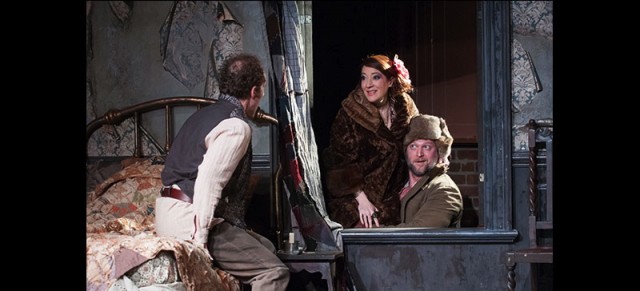
Kleopatra “Kiki” Maximovna (Clea Lewis) and Alexander Petrovich Kalabushkin (C. J. Wilson) have an idea for Semyon Semyonovich Podeskalnikov (Joey Slotnick) as his suicide approaches (photo by Ahron R. Foster)
Dying for It gets off to a rocky start, with silly, lackluster slapstick that quickly grows tiresome. But once Semyon gets rid of the blood sausage and the tuba, the play, keenly helmed by Atlantic Theater artistic director Neil Pepe (3 Kinds of Exile, A Life in the Theatre), finds its groove on Walt Spangler’s appropriately dilapidated boarding-house set, evolving into an engaging farce about trying to find meaning in one’s life. The cast is a mixed bag: Slotnick (Boston Public, The Altruists ) is charming as the suicidal Semyon, Lewis (Ellen, Writer’s Block) is delightful as the spirited Kiki, Stanton (A Free Man of Color, All in the Timing) is stalwart as the determined Aristarkh, Barron (Domesticated, Knickerbocker) is fiery as the wild Margarita, and Wilson (The Lady from Dubuque, Gore Vidal’s The Best Man) proves once again that he is one of New York theater’s finest character actors as the bold and beefy Alexander, but Serralles (The Jammer, Stunning) is too brusque as Masha, the usually dependable Maloney (Outside Mullingar, Glengarry Glen Ross) falters with comedic timing as the priest, and Darragh (The Jammer, Appropriate) overdoes it as the poet. The Suicide was never staged in Erdman’s lifetime (he died in Moscow in 1970); it made a brief run on Broadway in 1980, with Derek Jacobi in the lead role. With Dying for It, Buffini (Gabriel, Handbagged) has thankfully brought it back from the dead, reinvigorating it for another time, when rampant surveillance, cyber-bullying, and terrorism have people around the world questioning what they say and do in public.
FAREWELL, HERR SCHWARZ
FAREWELL, HERR SCHWARZ (SCHNEE VON GESTERN / היה שלום פטר שווארץ) (Yael Reuveny, 2013)
Quad Cinema
34 West 13th St.
Opens Friday, January 9 (also at the JCC in Manhattan January 10-11)
212-255-2243
www.quadcinema.com
 Named Best Documentary at the 2013 Haifa International Film Festival, Yael Reuveny’s Farewell, Herr Schwarz offers a unique look at the Holocaust and its continuing effects on her and her family through three generations. “We were raised to reject the Diaspora,” the Israeli-born, Berlin-based writer and director says near the beginning of her first feature-length film. “I was supposed to be ‘the new Jew’ but somehow I ended up living in Germany, in the land I wasn’t allowed to set foot in. I wasn’t allowed to be here because of my grandmother’s story. But still, her story, which haunted my childhood, eventually made me build my home here.” And a haunting story it is, filled with intrigue, mystery, and powerful emotions. Sensitively shot by cinematographer Andreas Kohler and featuring an elegiac score by Volker “Hauschka” Bertelmann, the film explores what happened between Reuveny’s grandmother, Michla Schwarz, and Michla’s beloved brother, Feiv’ke. During the war, Feiv’ke was sent to the Schleiben concentration camp in Germany, where Michla thought he perished. Yet Reuveny discovers that her great-uncle actually survived the Holocaust but remained in the same town he had been held in, changing his first name to Peter, marrying a non-Jewish German woman whose brother was a Nazi, and starting a family.
Named Best Documentary at the 2013 Haifa International Film Festival, Yael Reuveny’s Farewell, Herr Schwarz offers a unique look at the Holocaust and its continuing effects on her and her family through three generations. “We were raised to reject the Diaspora,” the Israeli-born, Berlin-based writer and director says near the beginning of her first feature-length film. “I was supposed to be ‘the new Jew’ but somehow I ended up living in Germany, in the land I wasn’t allowed to set foot in. I wasn’t allowed to be here because of my grandmother’s story. But still, her story, which haunted my childhood, eventually made me build my home here.” And a haunting story it is, filled with intrigue, mystery, and powerful emotions. Sensitively shot by cinematographer Andreas Kohler and featuring an elegiac score by Volker “Hauschka” Bertelmann, the film explores what happened between Reuveny’s grandmother, Michla Schwarz, and Michla’s beloved brother, Feiv’ke. During the war, Feiv’ke was sent to the Schleiben concentration camp in Germany, where Michla thought he perished. Yet Reuveny discovers that her great-uncle actually survived the Holocaust but remained in the same town he had been held in, changing his first name to Peter, marrying a non-Jewish German woman whose brother was a Nazi, and starting a family.
Traveling from Israel to Poland to Germany, Reuveny meets with Peter’s widow, Helga Krüger, and two surviving children, Uwe and Barbara; speaks with some of her late grandmother’s longtime friends; and talks to her own parents, Etty and Shaul, and brother, Oded, who share their thoughts and feelings about what Feiv’ke/Peter did. Although Oded thinks that Yael should move forward instead of looking back, others are deeply troubled and fascinated as more and more of the truth is revealed. It’s a gripping tale that Reuveny divides into three generational chapters, focusing first on her grandmother and great-uncle, who grew up together, and then on the next generation: her parents and their cousins, the children from Peter and Helga’s marriage. Finally, she looks at the third generation: herself, a young Jewish woman born in Israel but now living in Germany, and Peter’s grandson, Stephan, who curiously works in a synagogue and is studying Judaism. Reuveny is obsessed with the past, “not knowing how much I’m allowed to forget, how much I am allowed to let people around me forget,” and she captures her torn feelings in this captivating film that reveals yet another side of the haunting after-effects of the Holocaust. Farewell, Herr Schwarz opens Friday, January 9, at the Quad, with Columbia professor Annette Insdorf on hand to introduce the 6:00 show; the film will also be screened January 10 & 11 at the JCC in Manhattan.
TICKET ALERT: BROADWAY WEEK WINTER 2015

THE CURIOUS INCIDENT OF THE DOG IN THE NIGHT-TIME is one of nearly two dozen Great White Way shows offering two-for-one tickets during Broadway Week
January 20 – February 5, buy one ticket, get one free
Tickets go on sale Friday, January 9, 10:30 am
www.nycgo.com/broadwayweek
Tickets go on sale January 9 at 10:30 am for the winter edition of Broadway Week, which runs January 20 to February 5 and offers theater lovers a chance to get two-for-one tickets in advance to see new and long-running shows on the Great White Way. Twenty-two shows are participating, including most of the hottest shows from the current season: The Curious Incident of the Dog in the Night-Time, It’s Only a Play, Disgraced, You Can’t Take It with You, Honeymoon in Vegas, A Delicate Balance, On the Town, and The River. Also on the bill is such recent fare as Cabaret, Beautiful: The Carole King Musical, A Gentleman’s Guide to Love and Murder, Kinky Boots, If/Then, the rebooted Les Misérables, Matilda the Musical, and The Lion King in addition to such longtime mainstays as Wicked, Jersey Boys, Chicago, The Phantom of the Opera, and Mamma Mia! As usual, you can look all you want, but the two-for-one list does not include The Book of Mormon, unfortunately.
THE BABADOOK
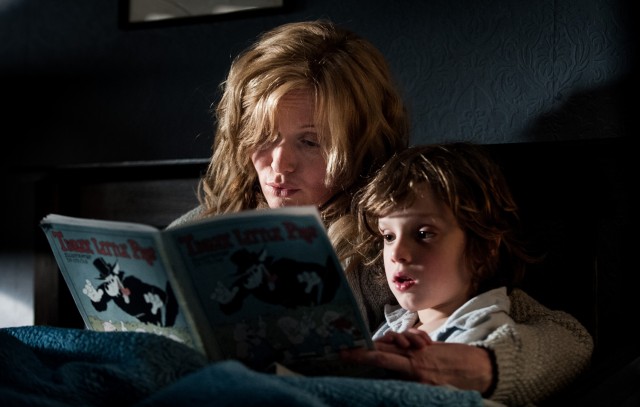
A mother (Essie Davis) and her young son (Noah Wiseman) must get past terrible tragedy in THE BABADOOK
THE BABADOOK (Jennifer Kent, 2014)
IFC Center
323 Sixth Ave. at West Third St.
212-924-7771
www.ifccenter.com
www.thebabadook.com
 A sleeper hit at Sundance that is now enjoying a hair-raising extended run at the IFC Center and has been named Best First Film of 2014 by the New York Film Critics Circle, The Babadook is a frightening tale of a mother and her young son — and a suspicious, scary character called the Babadook — trapped in a terrifying situation. Expanded from her 2005 ten-minute short, Monster, writer-director Jennifer Kent’s debut feature focuses on the relationship between single mom Amelia (Essie Davis), who works as a nursing home aide, and her seemingly uncontrollable six-year-old son, Samuel (Noah Wiseman), who is constantly getting into trouble because he’s more than just a little strange. Sam was born the same day his father, Oskar (Ben Winspear), died, killed in a car accident while rushing Amelia to the hospital to give birth, resulting in Amelia harboring a deep resentment toward the boy, one that she is afraid to acknowledge. Meanwhile, Sam walks around with home-made weapons to protect his mother from a presence he says haunts them. One night Amelia reads Sam a book that suddenly appeared on the shelf, an odd pop-up book called Mister Babadook that threatens her. She tries to throw it away, but as Sam and the book keep reminding her, “You can’t get rid of the Babadook.” Soon the Babadook appears to take physical form, and Amelia must face her deepest, darkest fears if she wants she and Sam to survive.
A sleeper hit at Sundance that is now enjoying a hair-raising extended run at the IFC Center and has been named Best First Film of 2014 by the New York Film Critics Circle, The Babadook is a frightening tale of a mother and her young son — and a suspicious, scary character called the Babadook — trapped in a terrifying situation. Expanded from her 2005 ten-minute short, Monster, writer-director Jennifer Kent’s debut feature focuses on the relationship between single mom Amelia (Essie Davis), who works as a nursing home aide, and her seemingly uncontrollable six-year-old son, Samuel (Noah Wiseman), who is constantly getting into trouble because he’s more than just a little strange. Sam was born the same day his father, Oskar (Ben Winspear), died, killed in a car accident while rushing Amelia to the hospital to give birth, resulting in Amelia harboring a deep resentment toward the boy, one that she is afraid to acknowledge. Meanwhile, Sam walks around with home-made weapons to protect his mother from a presence he says haunts them. One night Amelia reads Sam a book that suddenly appeared on the shelf, an odd pop-up book called Mister Babadook that threatens her. She tries to throw it away, but as Sam and the book keep reminding her, “You can’t get rid of the Babadook.” Soon the Babadook appears to take physical form, and Amelia must face her deepest, darkest fears if she wants she and Sam to survive.
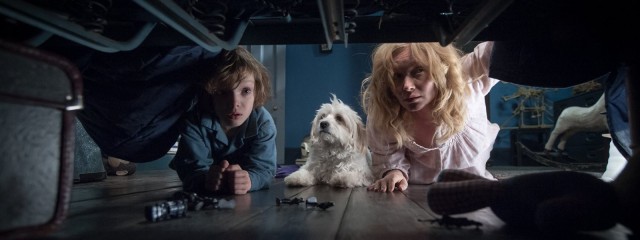
Writer-director Jennifer Kent explores classic horror tropes in her feature debut, the sleeper hit THE BABADOOK
The Babadook began life as a demonic children’s book designed by illustrator Alex Juhasz specifically for the film — and one that can now be preordered from the movie’s website, although you might want to think twice before inviting the twisted tome into your house. The gripping film, shot by Polish cinematographer Radek Ladczuk in subdued German expressionist tones of black, gray, and white with bursts of other colors, evokes such classic horror fare as Stanley Kubrick’s The Shining, Roman Polanski’s Repulsion, and Edgar Allan Poe’s The Fall of the House of Usher, where place plays such a key role in the terror. The Babadook itself is a kind of warped combination of the villains from F. W. Murnau’s Nosferatu, Robert Wiene’s The Cabinet of Dr. Caligari, and Hideo Nakata’s The Ring. Kent, a former actress who studied at Australia’s National Institute of Dramatic Art with Davis, lets further influences show in the late-night television Amelia is obsessed with, which includes films by early French wizard Georges Méliès. But the real fear comes from something that many parents experience but are too ashamed or embarrassed to admit: that they might not actually love their child, despite trying their best to do so. At its tender heart, The Babadook is a story of a mother and son who must go through a kind of hell if they are going to get past the awful way they were brought together.
VIDEO OF THE DAY: “SHADOW PEOPLE” BY DR. DOG
Who: Dr. Dog
What: The Dr. Dog 4×4
Where: Music Hall of Williamsburg, 66 North Sixth St., 718-486-5400, and Bowery Ballroom, 6 Delancey St., 212-533-2111
When: January 9-12 at Music Hall of Williamsburg, January 14-17 at Bowery Ballroom, $25-$35
Why: Philly six-piece celebrates next week’s release of its first concert album, Live at a Flamingo Hotel (the Anti- two-LP set can currently be streamed here), featuring live versions of songs from such albums as 2002’s Toothbrush, 2007’s We All Belong, 2008’s Fate, 2010’s Shame, Shame, 2012’s Be the Void, and 2013’s B-Room, playing Music Hall of Williamsburg with Twain (1/9), the Districts (1/10), Elvis Perkins in Dearland (1/11), and mewithoutyou (1/12) and Bowery Ballroom with Roadkill Ghost Choir (1/14), mewithoutyou (1/15), Yellerkin (1/16), and Field Mouse (1/17)


